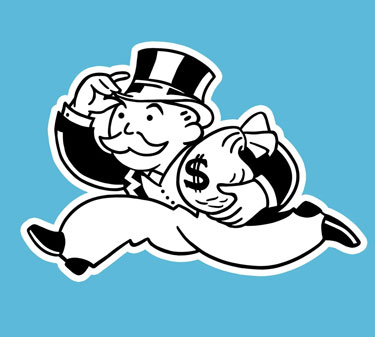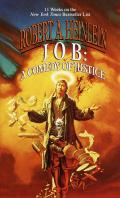America the Stupidful

I had some friends over the other night to nerd out a little on some DS9 and Lower Decks, but we also gabbed about other stuff and inevitably the subject turned to our individual post-election anxieties and outrage. I guess we’re still in the assign-blame stage of our trauma, because we spent a good chunk of time on how is it that so many Americas are this stupid?
I hesitate to use the word “stupid.” Yet, while un- and misinformed is a true and more specific substitute phrase, it fails to capture the greater scope of failings. Why did the Republican propaganda campaign work so well, especially considering that the garbage being claimed in it was so obviously false and easily debunked with very little effort? People accepted the misinformation without any critical thought because, what? Laziness? Indifference? Need for simplicity?
History has shown us that the Republican party is (a) very bad at governing when it comes to the bulk of the American public; (b) completely devoted to concentrating as much wealth in as few hands as possible so long as it includes their hands; and (c) expert at manipulating low-information voters and using fear of The Other to focus voter attention away from their real priorities, which are profoundly unpopular with the vast majority of Americans. The New (i.e. post-“Tea Party”) Republicans have taken the fear tactics and psychological warfare manipulation playbook and kicked it into overdrive.
Despite these New Republicans being openly fascist, despite the plain-to-see influence of corrupt billionaires on their agenda, despite literal criminal convictions among many of the major players, they won election largely on the basis of anti-LGBTQ posturing, demonization of immigrants, coded and not-so-coded racism and misogyny, and fantasy fiction about how money works. All bullshit, all reliant on generating a lizard-brain emotional fight-or-flight response and completely bypassing rational thinking in their audience.
It shouldn’t work. And yet, here we are.
It’s the last of those things—fantasy fiction about money—that’s the most maddening to me, both because it underpins all the others and because it’s so easily refuted for anyone who bothers to look into it.
Also, it isn’t just a New Republican thing, it’s been a Republican thing for ages, a long con on the American people going back a century but that really got rolling with Ronald Reagan. Somehow it became conventional wisdom that Republican economic policies were more sound, when in fact, with the possible exception of the Dwight Eisenhower administration’s, every Republican agenda since the 1920s supported concentrating more wealth with the rich and putting more of the onus for funding the government on the lower classes. Favorite methods for this were shifting the tax burden downward and eliminating regulations on businesses, always leading to disaster.
GOP: GREED OUTWEIGHS PUBLIC INTEREST
Warren G. Harding became President in 1921 after campaigning on a “return to normalcy” after the Spanish Flu pandemic and World War I, appealing to a nostalgia of days gone by rather than the needs of the present and future. He opposed the League of Nations and championed deregulation, but had little else to work with in terms of policy goals. According to Woodrow Wilson cabinet officer William McAdoo, a typical Harding campaign speech was “an army of pompous phrases moving over the landscape in search of an idea,” while the New York Times described voters’ reception of Harding’s words as “a reflection of their own indeterminate thoughts.”
Harding cut taxes, including the elimination of an “excess profits tax”—wouldn’t that be handy today?—and reducing the top marginal income tax rate from 73% to 58% and eventually to 25%. Regulations were slashed on the railroad industry and business generally and his administration was rife with corruption. Though in the short term the economy boomed, lack of regulation under Harding and his successor Calvin Coolidge allowed for monopolistic industry and excesses of greed and led to the Great Depression in 1929. Hebert Hoover was elected in 1928, the third consecutive Republican administration, and took office with this statement: “Given the chance to go forward with the policies of the last eight years, we shall soon with the help of God, be in sight of the day when poverty will be banished from this nation.” He said this despite growing income inequality that was seeing the poor get poorer, then stock market crashed mere months later. Coolidge and Hoover had both been warned that economic calamity was coming but neither did anything to head it off and Hoover did nothing to effectively combat the Depression when it came, though he did increase taxes on the wealthy—basically the only people left in the country with any income to speak of—and attempt reforms, just not to the scale required. It took Democrat Franklin Roosevelt’s New Deal to start righting the wrongs of the three Republican administrations and ultimately the economic impact of World War II to fully bring the nation out of the Great Depression.
From FDR on, only the aberrant presidency of Eisenhower, only nominally a Republican (he described himself as a “progressive conservative” that believed in robust government services, at least compared to other Republicans), broke the string of Democratic administrations until 1969, when Republican Richard Nixon took office. Nixon inherited a generally healthy economy that was experiencing high-for-the-era inflation of over 4% thanks in part to the expense of the Vietnam war. Nixon policies turned surplus into deficit, begat recession, and, despite some easing in the short term, higher inflation that peaked at 11%. The second Nixon recession continued after he resigned from office and successor Gerald Ford saw unemployment hit 9%, a post-WWII record.
But it was the “Reagan Revolution” that kicked off so many of the troubles we live with today.
Declaring that “government is the problem,” Reagan stormed into office in 1981 to implement “trickle-down economics,” the long-since discredited theory that giving more money to wealthy interests will result in that money “tricking down” to everyone as those at the top hire workers. His reforms cut the top marginal tax rate from 70% to 50% and eventually to just 28%; cut corporate taxes and tripled the exemptions for the estate tax; brought on a two-year recession; saw unemployment top 11%; busted labor unions; and halved the number of regulations on industry. The wealth gap began to widen greatly and the middle class started to shrink.
Reagan’s deregulation of banking and broadcasting gave us the Savings and Loan crisis (which cost taxpayers $160 billion as the government had to pay back customers of nearly 750 S&L institutions that had their savings pilfered by embezzlers and lost to previously-illegal investment schemes) and the elimination of the Fairness Doctrine, plus ushered in those lovely pharmaceutical commercials we see constantly on TV. Deregulation of the insurance and healthcare industries put profit motive front and center, eliminating non-profit requirements for hospitals and health insurance; public health programs were slashed, the percentage of uninsured Americans spiked, medical debt became a common thing.
We’ve never recovered from Reaganomics, with successor Democratic administrations only managing to make marginal improvements and successor Republican administrations doing their damnedest to make things worse.
George W. Bush repeated the deregulatory escapades of the 1920s and the budget-busting tax breaks and military spending of the 1980s, giving us sanctioned energy scams and the Great Recession of 2007, not to mention a mountain of debt and an even more enormous wealth gap between the top of the heap and the bulk of the country. Trump took corruption, fraud, and reverse-Robin-Hooding to levels previously unheard of, and is so incompetent that his mismanagement of the COVID pandemic contributed greatly to worldwide economic hardships and inflation unseen since Nixon’s time.
There is nothing, nothing, to support the idea that Republican policies will help the average American economically. They invariably hurt everyone but the super-rich. Trump policy is even worse, promising the most extreme transfer of funds from the poor, middle class, and even well-to-do to the billionaire class.
The middle class comprised two-thirds of Americans when Jimmy Carter left office in 1981. It’s now roughly one-third and falling, thanks to Reaganomics, George W. Bush malfeasance, and Trump criminality.
And yet spouting bullshit at rallies and handing out placards at the RNC that read “Lower Prices Now” convinced people Republicans will help their bank balances? Really?
So, yeah: People are stupid.



Comments
Posted by Bill on December 19, 2024 (23 hours ago)
Indeed, Eisenhower did not declare himself a Republican until the year of his election, 1952.
On a related note, the same was true of the 1940 GOP nominee, Wendell Wilkie, who I don't believe declared himself a Republican until that year's party convention. I think his out-of-nowhere nomination originated the term "dark horse." FDR beat him, of course; it's interesting to note Wilkie's policies were only marginally less progressive than Roosevelt's. How he might have handled WWII is, of course, another matter. (He also died less than four years after the election, sooner than FDR did.)
No comments yet.
Add your comment
RSS feed for comments on this post | RSS feed for all comments